What is Project-Based ERP?
Project-based ERP is a system that helps organizations manage and optimize specific projects. It tracks and manages projects, including resource allocation, budgeting, scheduling, progress monitoring, inventory management, accounting, and business processes. These systems offer advantages like centralized information, collaboration, and improved project planning.
Key Features of Project-Based ERP
Compared to more generic ERP software, project-based ERP software offers a range of features and functionalities designed to streamline project management processes. These solutions review project dynamics and provide efficient tools for better management.
Project Planning
Efficiently scheduling projects is essential for project management as a whole. Project-based ERPs provide project management tools such as different types of scheduling, such as Gantt charts or Kanban boards. This helps keep tasks organized and progress updated until completion.
Resource Management
One key feature of project planning is resource management, which enables businesses to allocate personnel, equipment, and materials effectively. This is crucial for project budgets and project accounting. Organizations can optimize resource utilization, ensuring that projects are adequately staffed and equipped.
Human Resource Management (HRM)
The HRM module includes tools for recruiting, training, payroll, time tracking, and attendance. This helps your company streamline its HR department by centralizing all employee information and helping project leaders delegate tasks to the team members best suited for each. It also prevents worker overload by tracking how many tasks they are assigned.
Project Accounting
Another important aspect of project-based ERP is financial management, specifically project accounting. It offers valuable insights into project management capabilities and project budgets, aiding managers in making informed decisions regarding resource allocation and pricing strategies. The ideal software will facilitate accurate user billing by automating invoicing processes based on project milestones or deliverables.
Collaboration Tools
Collaboration tools are also integral to project-based ERP systems. These project management capabilities enable seamless communication among team members across different departments or locations, allowing businesses to track project progress. A project-based ERP will facilitate document sharing, task assignment, and progress tracking in a centralized platform, enhancing project management capabilities.
Customer Relationship Management (CRM)
The CRM module helps track potential clients/leads, and forecast new opportunities for sales. It also stores all customer information, from previous conversations to complete sales history. This ties into project management through marketing campaigns, where having access to sales data
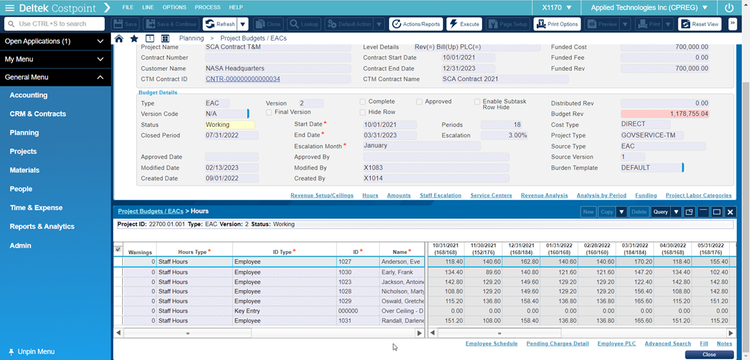
Real-Time Data
Real-time data plays a crucial role in project-based ERP for accurate decision-making. By capturing and processing data as it happens, organizations gain valuable insights into project performance and can make informed decisions promptly.
For instance, real-time financial data allows managers to monitor costs throughout the project lifecycle. They can compare actual expenses against budgeted amounts and take necessary measures to control spending if deviations occur. This proactive approach helps prevent cost overruns and ensures profitability.
Moreover, real-time data enhances resource allocation decisions. Managers can assess resource availability, workload distribution, and skill gaps instantly. With this information at their fingertips, they can assign resources efficiently based on current demand and capacity.
Furthermore, real-time data enables agile decision-making by providing up-to-date information on project status. Managers can quickly identify potential risks or issues impacting timelines or deliverables. They can immediately mitigate these risks before they escalate into larger problems.
Benefits of Project-Based ERP
There are many benefits to ERP systems, including:
- Project efficiency: With a centralized system in place, project managers gain real-time access to critical data, enabling them to monitor every aspect of the project closely. his enhanced visibility allows for proactive decision-making, ensuring that any potential bottlenecks or delays are promptly identified and addressed.
- Enhanced resource allocation: Companies can allocate resources effectively based on real-time information about availability, skill sets, and workload. This is done by accessing a holistic view of resource utilization across multiple projects, ensuring optimal allocation.
- Cost control and budget management: By integrating financial modules with other aspects of project management, organizations gain real-time insights into expenditure patterns. This allows stakeholders to closely monitor actual costs against budgets, ensuring that projects remain within approved limits.
Example of Cost Control with Project-Based ERP
- A government contractor can utilize project-based ERP to efficiently manage costs associated with various projects they undertake.
- By leveraging real-time financial insights provided by the ERP system, contractors can proactively identify cost overruns or deviations from budgets.
- Tracking expenses at a granular level ensures compliance with government regulations and facilitates accurate billing for reimbursable costs.
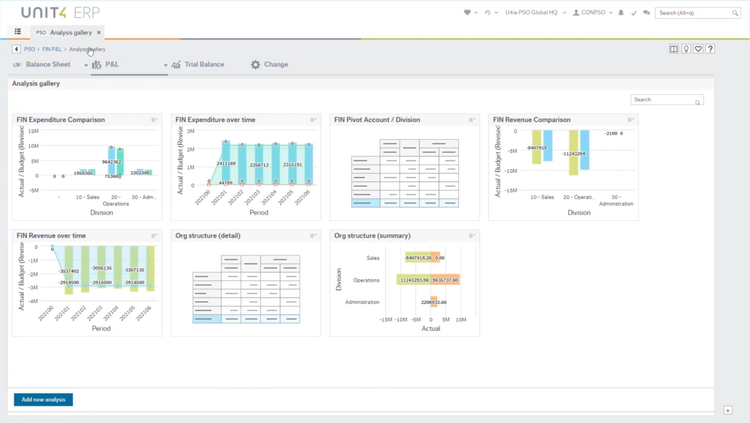
How to Choose a Project-Based ERP
Important Factors
Selecting the right project-based ERP solution is crucial for businesses aiming to streamline their operations and improve efficiency. Several factors should be considered in order to identify the best software solution for your organization:
- Industry-specific functionality: Different industries have unique requirements, so choosing a project-based ERP solution that caters specifically to your industry is essential. Look for software solutions that offer features tailored to your sector, such as construction management, manufacturing process control, or professional services automation.
- Scalability and flexibility: As your business grows, you need an ERP system that can scale accordingly. Consider the scalability of the software solution and ensure it can accommodate future expansion without significant disruptions or additional costs. Look for flexibility in customization options to adapt the system to fit your specific needs.
- Integration capabilities: An effective project-based ERP solution should seamlessly integrate with other systems and applications used within your organization. Evaluate whether the software offers integration with popular tools like CRM platforms, accounting software, or collaboration tools. This integration enables smooth data flow across different departments and enhances overall productivity.
- User-friendly interface: User adoption plays a vital role in successfully implementing any software solution. Choose an ERP system with an intuitive interface that is easy for employees to navigate and use effectively from day one. Conduct demos or trials of potential solutions to gauge user-friendliness before making a final decision.
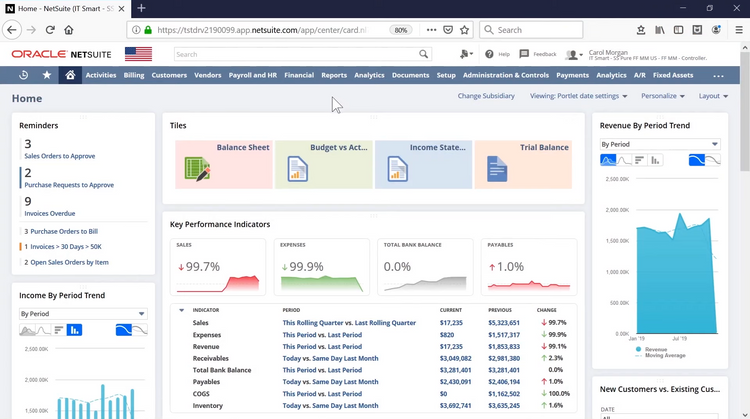
Vendor Comparison
To find the best project-based ERP solution for your business, it’s important to compare offerings from various vendors in terms of features, pricing models, customer support, and reputation within the industry:
- Features comparison: Create a checklist of essential features your organization requires and compare how different vendors meet those requirements. Look for functionalities such as resource planning, project tracking, time and expense management, budgeting, and reporting capabilities.
- Pricing models: Evaluate the pricing structures of different vendors to ensure they align with your budget and business requirements. Some vendors offer subscription-based models, while others may charge based on the number of users or projects. Consider which pricing model offers the best value for your organization.
- Customer support: A reliable vendor should provide excellent customer support to assist you during implementation and address any issues that may arise later. Look for vendors that offer comprehensive support through various channels like phone, email, or live chat.
- Reputation and reviews: Research each vendor’s reputation by reading customer reviews and testimonials. Pay attention to feedback regarding reliability, ease of use, system performance, and vendor responsiveness.
Examples of Top Project-Based ERP
Below is a comparison of some of the top ERP software that offers project tracking and management capabilities.
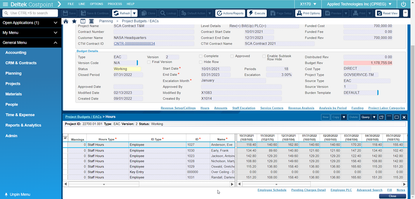
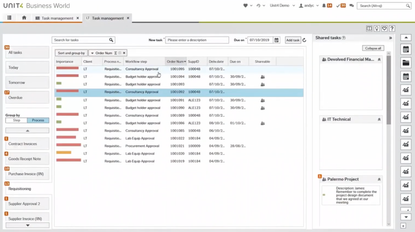
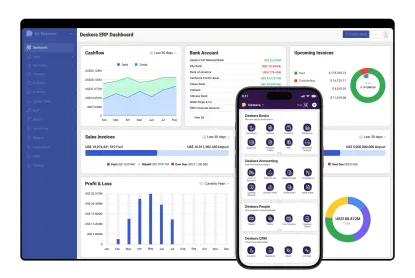
Frequently Asked Questions
What industries can benefit from project-based ERP?
Project-based ERP systems are highly versatile and can be beneficial across various industries, including:
- Construction
- Engineering firms
- Professional services (consulting agencies)
- Manufacturing (customized products)
- Architecture firms
- Research organizations (scientific studies)
- Software development companies (IT projects)
- Event management agencies (event planning) These industries often deal with complex projects involving multiple stakeholders and require effective management to ensure timely delivery within budget constraints.
